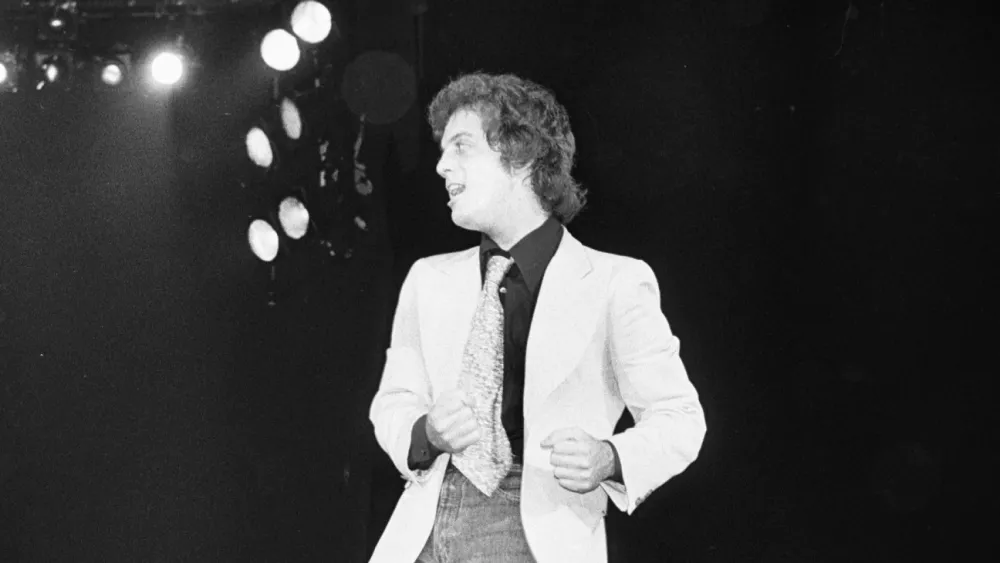The lights dimmed at New York’s iconic Beacon Theatre this past Wednesday night, but one crucial spotlight remained empty. As the 2025 Tribeca Festival opened with the world premiere of HBO’s highly anticipated documentary “Billy Joel: And So It Goes,” the Piano Man himself was notably absent from what should have been one of his most celebrated evenings.
Just a week prior, Joel had delivered news that sent shockwaves through the music world: he’d been diagnosed with normal pressure hydrocephalus (NPH), a brain disorder that would require him to step back from performing and focus on his recovery. The announcement meant cancelled concerts, worried fans, and a missing honoree at his own documentary premiere.
The Show Must Go On
Yet in true New York fashion—and in a way that would make Joel proud—the show went on. The documentary’s creators, co-directors Susan Lacy and Jessica Levin, along with the entire production team, transformed what could have been a somber evening into a genuine celebration of artistic legacy and human resilience.
“He’s going to be fine,” co-director Susan Lacy assured The Hollywood Reporter before the screening, her words carrying the weight of recent conversations with medical professionals. “He just needs to recover. He needs to do the physical therapy, which he’s doing—the doctors were telling him yesterday he’ll be fine.”
The evening’s most touching moment came when Lacy shared a message from Joel himself, delivered with the trademark humor that has endeared him to generations of fans: “Getting old sucks, but it’s still preferable to getting cremated.” Even facing health challenges, the songwriter’s wit remained as sharp as ever, proving that while his body might need healing, his spirit burns as bright as always.
Behind the Scenes: A Family’s Support
What emerged most powerfully from the premiere wasn’t just the celebration of Joel’s musical achievements, but the deep bonds he’s forged throughout his career. Steve Cohen, Joel’s longtime lighting director and executive producer of the documentary, painted a picture of an artist surrounded by genuine care and friendship.
“He’s doing great. He’s working on his healing and recovery,” Cohen shared, his voice carrying both professional respect and personal affection. “He’s bright; he’s happy; he’s thrilled for us. He called me and said, ‘I’m so proud of the work you’ve done. I didn’t expect you to get there.'”
Cohen’s words revealed something beautiful about Joel’s character—even while dealing with his own health concerns, he was reaching out to support and encourage his collaborators. “At the end of the day, he’s my best friend and I don’t give a shit about anything else except him being healthy and enjoying this part of his life,” Cohen continued, capturing the sentiment that echoed throughout the evening.
A Bittersweet Celebration
Producer Emma Pildes perhaps summed up the evening’s complex emotions best: “This is hard, but this is what our bodies do to us. But this is a celebration of him and his artistry and everything that he’s done.” Her words acknowledged the reality of aging and health challenges while refusing to let them overshadow a lifetime of extraordinary achievement.
The absence felt particularly poignant because, as Lacy noted, “We wanted him to be here and hoped he would be here, and he wanted to be here.” Yet the evening proved that Joel’s presence transcended physical attendance—his music, his stories, and his impact filled every corner of the Beacon Theatre.
Star-Studded Support
The premiere drew an impressive crowd of supporters, including Whoopi Goldberg, Mariska Hargitay, Mira Sorvino, and Tom Hanks, who serves as executive producer alongside his Playtone partner Gary Goetzman. Their presence spoke to Joel’s influence across entertainment industries and generations.
Tribeca Festival co-founders Robert De Niro and Jane Rosenthal added their own special touch to the evening, reciting lines from Joel classics like “Movin’ Out,” “Only the Good Die Young,” “New York State of Mind,” and “You May Be Right” during their opening remarks. Their tribute highlighted Joel’s unique position as both a global music legend and a distinctly New York icon.
Looking Forward
As we await the summer release of both parts of “And So It Goes” on HBO and Max, Joel’s situation reminds us of something important about artistry and resilience. Great artists don’t just create music—they create communities, forge connections, and leave legacies that extend far beyond individual performances.
Normal pressure hydrocephalus, while serious, has a good prognosis with proper treatment. As his medical team and loved ones have emphasized, Joel is on a path to recovery. The physical therapy, the rest, the healing—it’s all part of ensuring that when he’s ready, he can return to doing what he loves most.
For now, we’re reminded that sometimes the most powerful performances happen offstage—in hospital rooms, in conversations with old friends, in messages that make audiences laugh even in difficult moments. Billy Joel may have missed his documentary premiere, but he hasn’t missed a beat in showing us what grace under pressure really looks like.
The Piano Man’s melody continues, even when the piano bench sits empty for a while.
